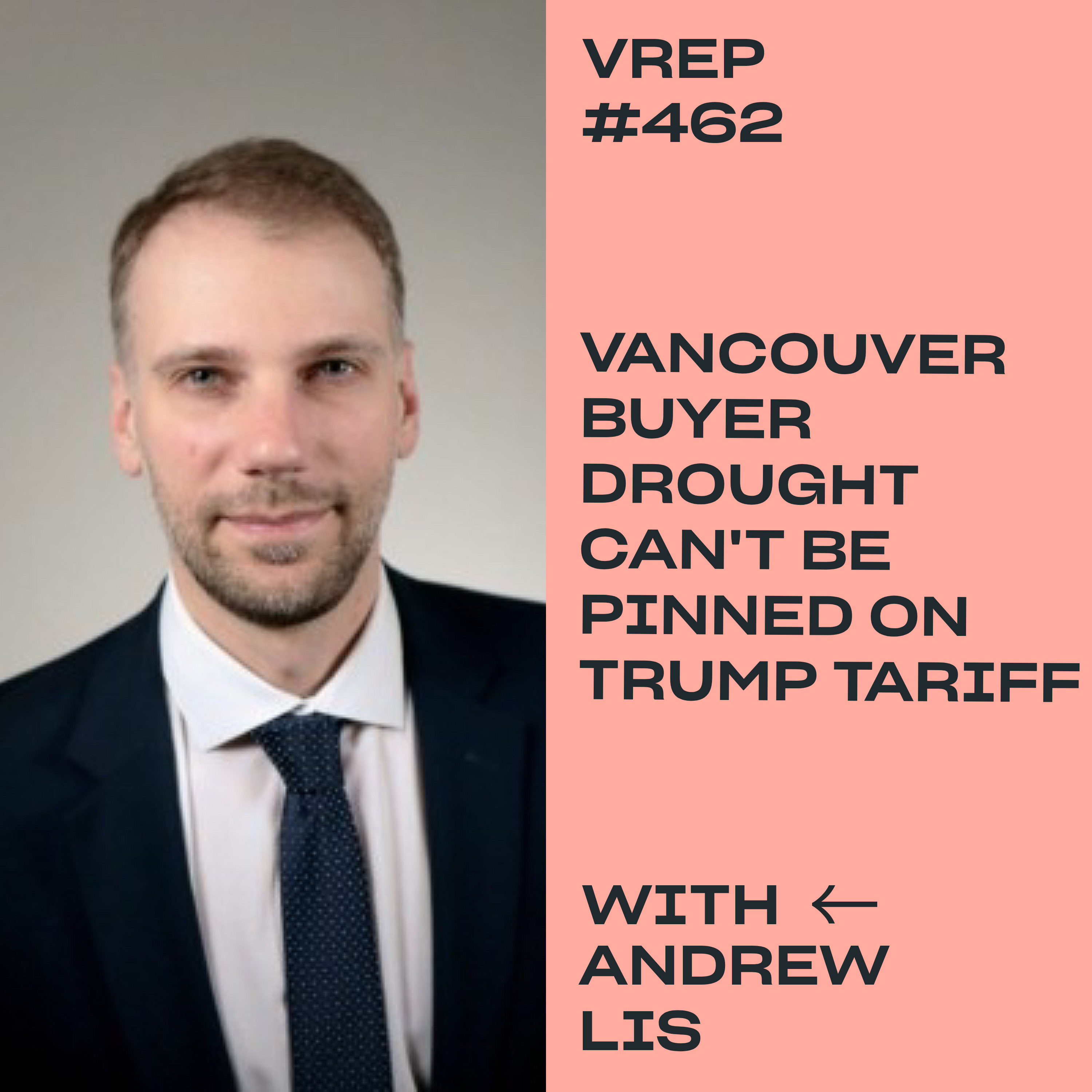Episode 389 – September 21, 2023
Listen On: Apple Podcasts | Spotify | Google Podcasts
Guest Information

Ali Wolf
Ali Wolf is the Chief Economist for Zonda, the largest new home construction data company in North America. As head of the Economics Department, Ali manages and analyzes the content for Zonda, runs special research projects, strategizes with the nation’s largest homebuilders, and presents nationwide covering topics across the housing market and wider economy.
Ali is the creator of Zonda’s proprietary indices, including the New Home Pending Sales Index and the New Home Lot Supply Index. Ali has focused much of her career on understanding prior recessions and led the charge on ‘Millennials discussing Millennials’ in the homebuilding space. Highly regarded as an industry expert, Ali is quoted frequently in national publications including CNBC, The Wall Street Journal, Forbes, and Yahoo! Finance, and has also appeared on national and international TV and radio programs such as Bloomberg TV and Marketplace. Further, Ali serves as an advisor to the White House, providing data and insights on the U.S. housing market.
Prior to joining the Zonda team, Ali worked for another consultancy firm and was a researcher for both the Canadian and UK Parliaments. Ali holds a Bachelor’s Degree from The Ohio State University in Economics and a Master’s Degree from the London School of Economics in Real Estate Economics and Finance.
Episode Summary
We sit down with Ali Wolf, Chief Economist at Zonda and advisor to the White House, to check in on the economy, interest rates and how events like covid and the changing office market have affected US housing. How does a market like Vancouver compare to Los Angeles? Where are interest rates going next year? Plus, what US cities should investors keep an eye on?
Keep your finger on the pulse of Vancouver’s real estate market with our Live Wire email newsletter.
Who is Ali Wolf?
I was born and raised in Cleveland but have lived in California for the last 10 years. I’m the Chief Economist with Zonda. Zonda is a housing data and consultancy firm; we’re the largest data provider across North America with data on Canada and the US.
In my role, I step back and look at trends in the economy, with policy and in different markets. Our take on the market helps to guide our clients.
When I took Econ 101, economics was defined as the efficient allocation of resources and I had never heard myself described better. Economics and I were made for each other! Real estate is a really good way to look at data and math, but also has so much to do with consumer behaviour. I love the intersection between those two.
How is the US housing market right now?
Historically, you could make a statement about the US market. But today it’s a tale of two markets:
- The existing home market, which is in a stalemate
- The new home market, which is quite strong
Traditionally new homes were a luxury good. But as we look at the US market, new homes are only 7% more expensive than resale homes, whereas they used to be 30% higher. Since there isn’t such a huge price gap, consumers are fine to pay a little more to lock in a good product.
Builders are also able to offer incentives to buyers. They can offer money towards high interest rates which existing homeowners can’t offer with resale properties.
Why has the price gap between resale homes and new homes narrowed from 30% to 7%?
Because resale inventory is so tight in the US, existing homeowners realize they are sitting on gold. They are pricing homes way higher than they would have just a few years ago. The owners know they have pricing power.
Another factor is the size of new homes. Because builders are having to compete on price and dealing with labour and supply shortages, they are building smaller homes. New homes are 10% smaller this year than they were last year.

Why is inventory so low in the resale market in the US?
This is a big difference between the US and Canada. In the US, we offer a 30 year fixed rate mortgage, which Canada doesn’t offer, and basically everyone in the US has one. 80% of US homeowners have a mortgage rate under 5% and 60% have a mortgage rate under 4%.
So if someone wants to move, they might feel trapped because they’d have to give up a 3.5% interest rate for 7%, which will dramatically change their monthly payment. That’s why a lot of people are choosing to stay put.
We’ve seen that if builders offer to reduce the interest rate from 7% to 5%, that can be enough of an incentive for some people to move.
We’re not waiting for interest rates to drop back down to 2.5%; we don’t think that will happen in the next five years. But if we can reduce the gap between the rate someone is sitting on and the market rate, that can be enough for someone to move.
Where do you see interest rates going in the next 1-5 years?
I’ll answer this with the utmost humility as it’s one of the hardest numbers to forecast. In the US, we were hovering at about 6% interest rates for the past year. We’re now back up at 7% over the last month.
I was of the belief, as were many economists, that we would fall into a recession this year and interest rates would come down. But we are still seeing a very strong economy and it’s hard to see a recession starting in the last quarter of 2023.
Our view is that we do fall into a US economic recession sometime in 2024, which traditionally results in the Federal Reserve cutting rates. So we do think rates will go back towards 5-6% next year but there are lots of moving parts that play into that.
What is the biggest risk to the US housing market?
An economic shock is the biggest risk to the US housing market. We’re not expecting a foreclosure crisis; this housing market is more stable than what we’ve seen in the past. But we could still see people who need to sell because of job loss, shifts in the economy, etc.
Keep your finger on the pulse of Vancouver’s real estate market with our Live Wire email newsletter.
There are three economic shocks we could be looking at:
- The risk related to the Federal Reserve and what central banks are doing across the globe
- The risk related to consumers and what they’re doing with their savings, spending and debt
- The risk related to the office market and commercial real estate
What is your impression of the Canadian real estate market?
Zonda does a lot of work in Canada and I try to stay up to date. It seems like the Canadian housing market has followed a parallel path with the US, but the two markets do diverge. The biggest thing I learned from my recent visit to Vancouver was how difficult it is to get more homes built.
I live in Los Angeles and across the US, Los Angeles is seen as expensive and landlocked. But Vancouver is so much worse than LA in terms of the availability to get homes built.
Canada is going to have a long-standing, if not indefinite, supply issue. I don’t know how there’s going to be a way to supply the market to any scale. In a market like Vancouver, I don’t know how prices would go down in the long term because I don’t know how you’d balance supply and demand.
Keep your finger on the pulse of Vancouver’s real estate market with our Live Wire email newsletter.
How has covid impacted cities in the US?
During covid, we saw people in these dense, urban areas moving away from larger cities because they can work remotely or because they’ve reevaluated their priorities. So there’s this idea that big cities are emptying out.
But 2500 homes were being built in Los Angeles over the last quarter. Even as people are leaving, you still have a huge supply and demand imbalance that is holding up the housing market better than people expected.
With the emptying out of downtowns, have we seen a permanent shift in the office market?
My understanding is that Class A, well-located and well-executed office buildings have returned to a reasonable level of occupancy.
San Francisco stands out as a city that has taken the greatest hit in the office market. Some of the tech jobs have left the city. But in other large cities, Class A office is still doing fine. The office real estate that isn’t as well located or as attractive is where I see the bigger risks.
For example, in Texas, we’ve seen a lot of growth but also a lot of suburban office space that poses a risk to the local economy.
What US cities or markets are you most excited about?
There aren’t many under the radar markets anymore now that more people have moved farther as remote workers. Those markets are still exciting, but I’d be cautious with them.
There’s a phrase in the US called “half backs.” People who live in the midwest or northeast will get sick of the bad weather and move south. They generally end up in Florida but for one reason or another, they don’t like it. But they don’t want to go back to the midwest or northeast, so they go “half back.” That puts them in places like North Carolina or Virginia.
Just in my circle of friends, I know a lot of people who are moving to Virginia now as Charlotte or Raleigh have gotten more expensive.
Bank of America tracks all of the people banking with them and where they move to. Jacksonville, Florida is still number one on their list. So there is still interest in Florida and Jacksonville in particular as Miami, Tampa and Orlando are more expensive and there are more hurricane risks in the west.
Columbus, Ohio is another area where we’re seeing a lot of migration. Foodies want to be there, there’s a good drinking culture and there’s a big sports environment. Austin, Texas took a big hit recently where houses were too expensive and the market stalled out last year. Despite that, people are still moving to Austin.

As someone who lives in California, it’s rare for me to look elsewhere and think it’s expensive… and I do think Austin is expensive. But Austin has seen the most high income job growth since the pandemic and is still in the top three for migration. Those factors support home prices going up. So I’m torn on Austin. If it’s a long term investment, it probably still makes sense given the fundamentals.
Phoenix, Arizona is a market that got too hot for its own good. So many high income individuals moved there that prices shot up. The market isn’t as hot as it was but is still a healthy housing market.
If someone was looking to invest in the US, where would you suggest they invest for long term growth and stability?
I would suggest Raleigh, North Carolina or Portland, Oregon (due to a block on some future development) or maybe Jacksonville, Florida. I still think Tampa has opportunities. I loved it before the pandemic and now it’s this gem with some midwest culture and some landlocked areas.
Notice that I’m not saying Dallas or Houston because while people are moving there, the sky’s the limit in terms of development.
We just had a devastating wildfire season in BC. How are environmental concerns shaping the US housing market?
That’s an interesting question because a lot of the areas where new construction is occurring are areas with environmental risks. I don’t think it’s changing where construction is occurring or where consumers are buying as much as you would think.
Both Tampa and Jacksonville, less so with Jacksonville because it’s more insulated, are at hurricane risk. Even somewhere like Naples, Florida, which was hit by a huge hurricane last year, still has high home prices and rental rates.
We are finding that some of the areas with higher climate risks are getting hit with higher insurance costs. That could change the market as consumers have to consider that cost.
H3: What will the headline be for 2024?
In the US, we have a survey that Zonda does with builders across the country. 75% of builders think they’re going to start more homes in 2024 than they did in 2023. So I could say 2024 is the year of the builder.
What we’re also going to continue to see is the “life happens” housing market. There are a lot of reasons why people sell or don’t sell their homes. There are times when the math tells you not to move but life changes force you to move. I think that’s been a dominant driver in 2023 and will continue in 2024.
Life changes have always happened but the difference is we no longer have the extra buyers in the market that we saw over the last few years.
Keep your finger on the pulse of Vancouver’s real estate market with our Live Wire email newsletter.
The 5 Wire: Getting to Know the Chief Economist of Zonda, Ali Wolf
What is one book you recommend?
I love The Alchemist by Paulo Coelho. It’s not a business book but there are a lot of life lessons you can learn from it.
In the last five years, what new belief, behaviour or habit has most improved your life?
A phrase that has become very impactful for me is, “In business, it’s all about who you know.” It could not be more true. It could make or break someone’s career.
What have you been binge watching lately?
We just finished Silicon Valley on HBO. It’s so dumb but it’s clever too.
Favourite band or musician?
I love metal music. Avenged Sevenfold – I think they’re the most creative geniuses. My actual favourite band would be Breaking Benjamin.
What is something you’ve purchased recently for under $1500 that has had a positive impact on your life?
I just got back from Egypt and they make 18K gold necklaces and I got one with my name on it. It brings me joy every day of my life.
Bonus question: What’s it like being an advisor to the White House?
I’ve consulted with them for over two years and it’s always virtual. Every month, a couple of economists and I give them a report on the state of the market.
What I’ve learned is that I’m as guilty as most people, pointing blame at policy makers or the Fed or whoever else. But when you’re on the call and they ask you for a policy recommendation, it makes you realize that you can’t just wave a magic wand and fix systemic issues. There are really hard problems to solve.
Keep your finger on the pulse of Vancouver’s real estate market with our Live Wire email newsletter.
Episode Host

Adam Scalena
Adam is a full-service realtor, specializing in Vancouver’s best areas. His systematic approach to real estate and dedication to his clients has consistently placed him within the top 10% of realtors operating within Greater Vancouver.

Matt Scalena
Matt is real estate obsessed and considers himself a lifelong student of the Vancouver real estate market. As a co-manager of the Scalena Real Estate team, Matt prides himself on expertly advising buyers and sellers on all aspects of the fast-paced, dynamic Vancouver real estate market. He is present at every stage of the process, from that first phone call or email right through to when keys are exchanged between sellers and buyers.







